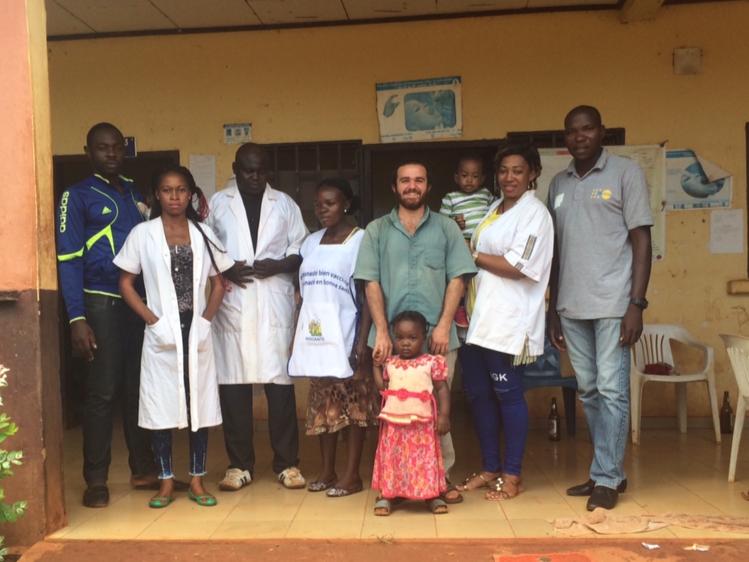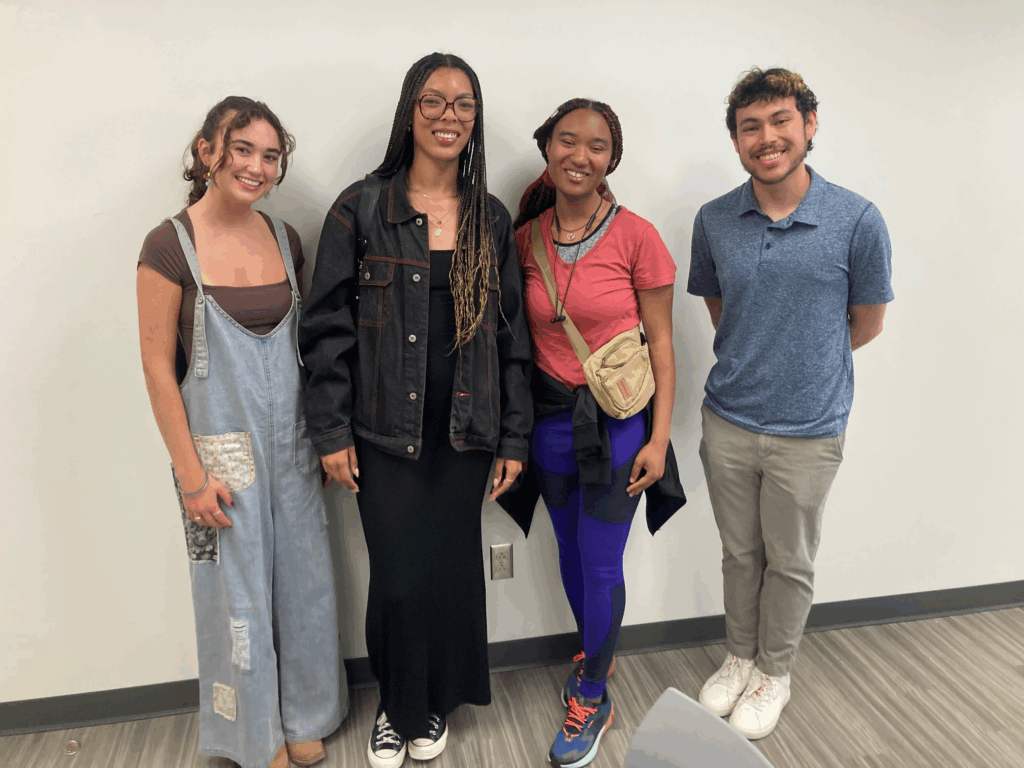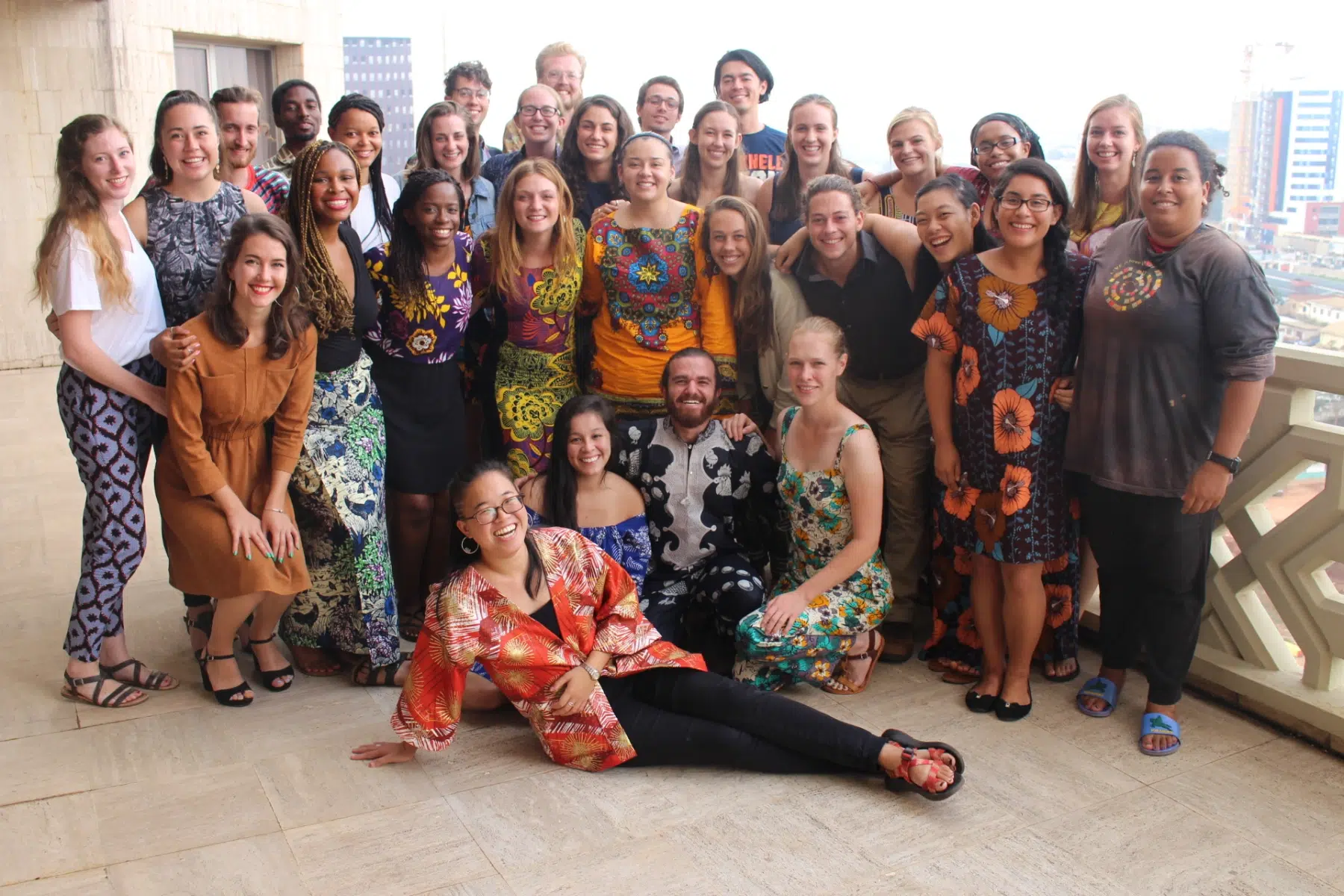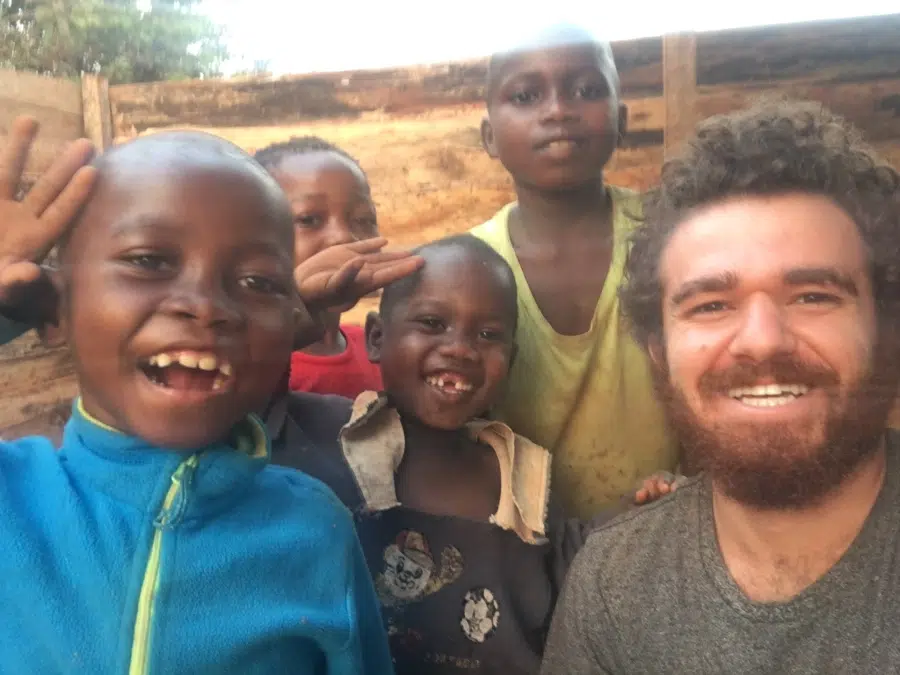 Jack’s Journey to Stand Up for Service
Jack’s Journey to Stand Up for Service
By Hayden Johnson (NPCA Communications Intern)
From the remote villages of East Cameroon to the capital city of Yaoundé, Jack Alperstein’s (Cameroon 2017-2020) Peace Corps journey exemplifies not only dedication to global service but also a remarkable ability to reflect and communicate his experience. Through his blog, Jack and the Peace Corps, Alperstein brings his readers into the daily realities, challenges, and successes of international volunteer work with clarity, humility, and heart.
Alperstein’s Peace Corps Experience
Between 2017 and 2019, Alperstein served as a Health Volunteer in the East Region of Cameroon, where he was assigned to a rural health center serving a community of roughly 800 people. Living 60 miles from the nearest paved road, and without electricity or running water, the site posed significant challenges. But it was also where Alperstein launched deeply impactful projects in collaboration with local health staff.
He supported HIV testing campaigns, led malaria bed net distributions, and introduced sustainable development initiatives such as rabbit-raising for nutrition and income generation. One of his most notable projects was securing a Peace Corps grant to install solar panels at the health center, providing the first stable source of electricity in the facility’s history.
From 2019 to 2020, Alperstein extended his service as a Peace Corps Volunteer Leader in Yaoundé, Cameroon’s capital. In this role, he worked with the Monitoring & Evaluation team to support fellow volunteers in tracking progress, meeting program indicators, and effectively reporting on outcomes. His efforts helped ensure data-driven accountability across health and community projects.
Sharing His Story
What sets Jack Alperstein apart is not only the impact of his work, but his ability to document it meaningfully. His blog, Jack and the Peace Corps, serves as both a personal journal and a public narrative of Peace Corps life. In entries filled with thoughtful reflection, he describes everything from securing funding for solar panels to adapting to life without electricity or running water.
In one post, he writes about the overwhelming support he received for his solar initiative, noting how quickly the funding goal was met. In another, he captures the quiet pace and emotional challenges of living in rural Cameroon. His writing is candid and immersive, bringing to life not only the work itself but the emotional landscape of service: the isolation, the breakthroughs, and the deeply human connections formed across cultures.
A Voice for Volunteer Experience
Through Jack and the Peace Corps, Alperstein offers a valuable narrative that resonates with current and future volunteers, global development professionals, and anyone interested in grassroots public health. His ability to document service in a way that is both practical and deeply personal helps demystify what it means to live and work in partnership with communities abroad.
Whether building solar-powered infrastructure, guiding volunteers through reporting processes, or simply sharing the quiet details of village life, Jack Alperstein shows that the Peace Corps experience is not just about what is accomplished, but also how it is remembered, interpreted, and shared.
Reflections from the United States
With that in mind, Alperstein was more than willing to continue his reflections upon his return to the United States and embarkment into the Peace Corps’ Third Goal. Alperstein, currently serving as the secretary of the Los Angeles RPCV Association, offered a compelling account of a recent gathering of Returned Peace Corps Volunteers and current volunteers in Los Angeles, California.
Read his reflection below:

“A healthy showing of the Southern California Peace Corps community gathered for a year-end celebration at the UCLA Career Center in Westwood. Soon-to-be-departing volunteers, recent graduates, prospective applicants, and family members were all welcomed to join and hear the wealth of experiences that current and returned Peace Corps Volunteers had to share. Jeffrey Janis, the UCLA Campus Recruiter, facilitated the meeting and introduced each speaker, starting with Dan Baker, President and CEO of the National Peace Corps Association. Dan opened with impactful remarks, highlighting just how much his Peace Corps experiences in Bolivia and East Timor shaped his career, leading to a lifetime of service and work with every aspect of the agency. He underscored the Peace Corps’ commitment to volunteer safety, stability, and helped reassure all that NPCA is doing all it can to advocate for past, present, and future volunteers.
Dr. Anne Rimoin (Benin 93-95), a renowned infectious disease epidemiologist and professor at UCLA’s Fielding School of Public Health, was next to speak to the group. She credits her two years in Benin as a Guinea Worm Eradication Program volunteer as kicking off her global health career and setting her on the path to becoming an epidemiologist. Dr. Rimoin shared a touching story of when she went back to her village a decade later to visit her host mother, and she remarked that she felt she had changed so much since her time as a volunteer. Her host mother responded that she hadn’t changed at all, “for it was here that you became yourself.” The room was touched by her honesty and ability to share such an impactful moment that every RPCV can understand in their own way.
Jeffrey then introduced a host of current volunteers, in order from the most recent to the most senior volunteers, to mirror the journey of a volunteer over time. First was Nikolai Schweber, a newly sworn-in volunteer in Armenia. He detailed the training process and the relationships he built amongst his cohort during his first three months. Lincoln Fang (Namibia) and Harry Paige (Morocco), both about a year into their respective services, highlighted the traveling, variety of projects, and diversity of experiences each volunteer can receive, even within the same country. Adam Traut, a volunteer in The Gambia discussed his many secondary projects and his role as an agriculture volunteer in his small, rural community. Yondon Jigjidsuren, a second-year volunteer in Cambodia, again highlighted the variety of projects and activities that each volunteer can participate in after some time getting to know a community. Lastly, Olivia Nelli, a third-year PCV Leader, detailed her process of deciding to stay in Peru for another year and the advantages given to her that a traditional two-year experience cannot.
Lastly before closing, Jack Alperstein, current secretary of the Los Angeles RPCV association, spoke on the work of NPCA chapters around the country and the community they provide Peace Corps volunteers, recent and long-returned alike. Jeffrey closed the meeting with comforting words that the NPCA and RPCVs around the country are doing everything within their power to make sure the Peace Corps remain steady in the near and pressing future.”

